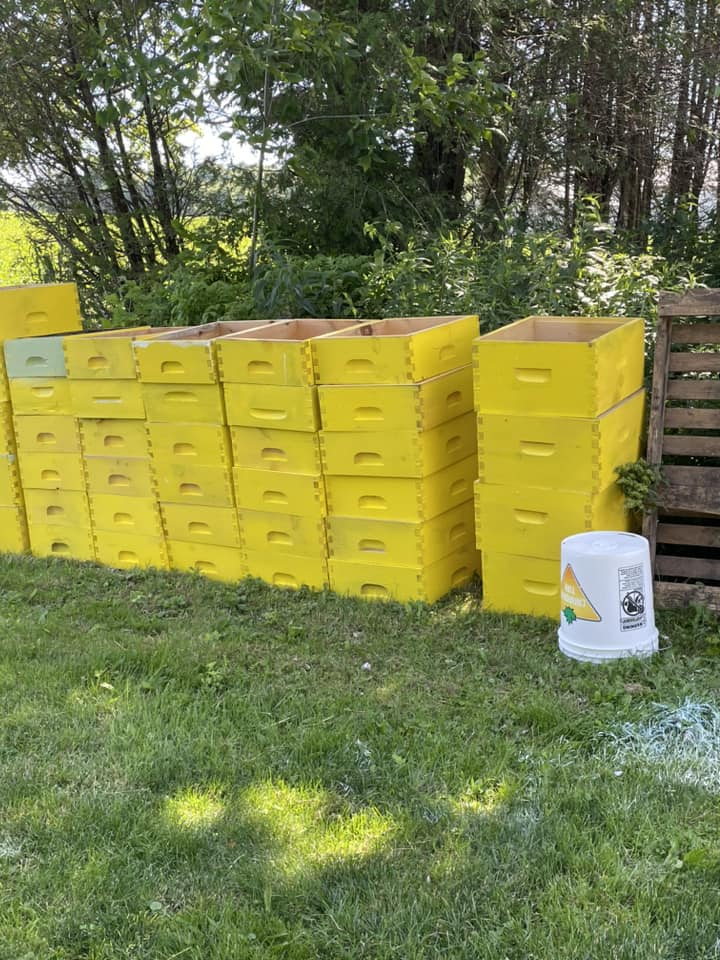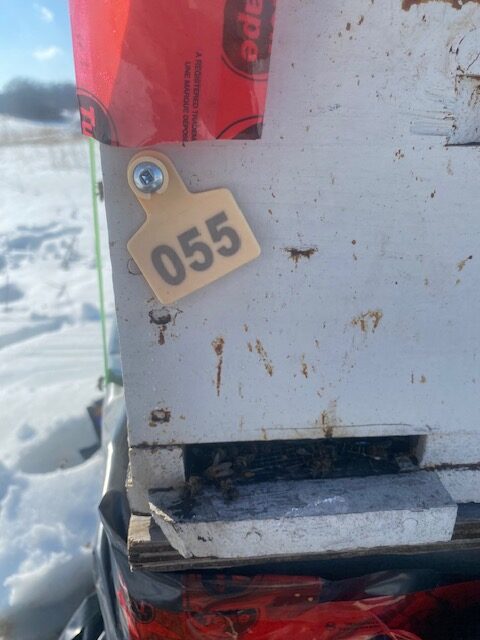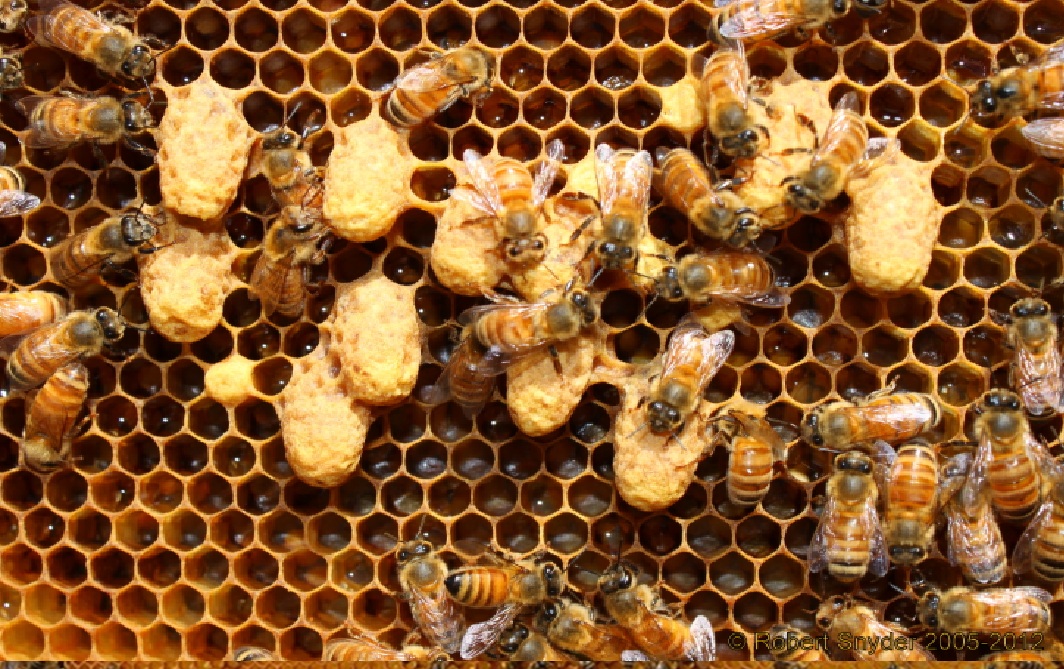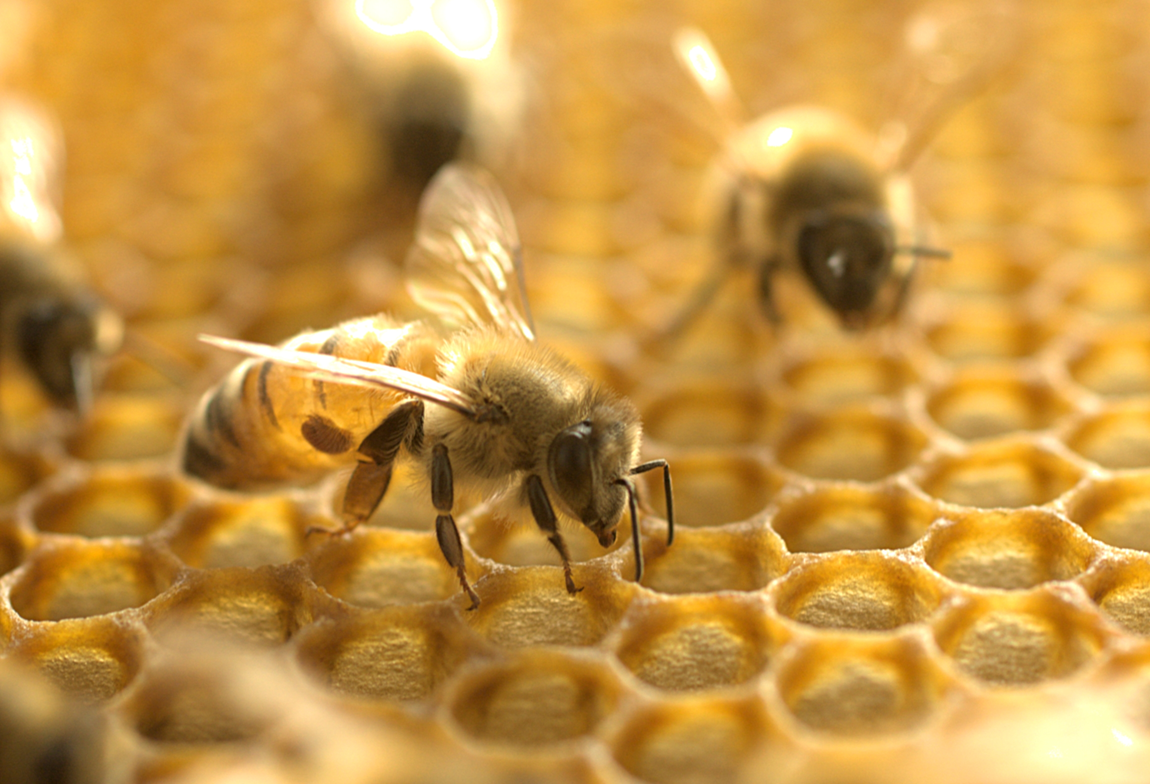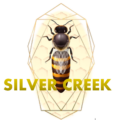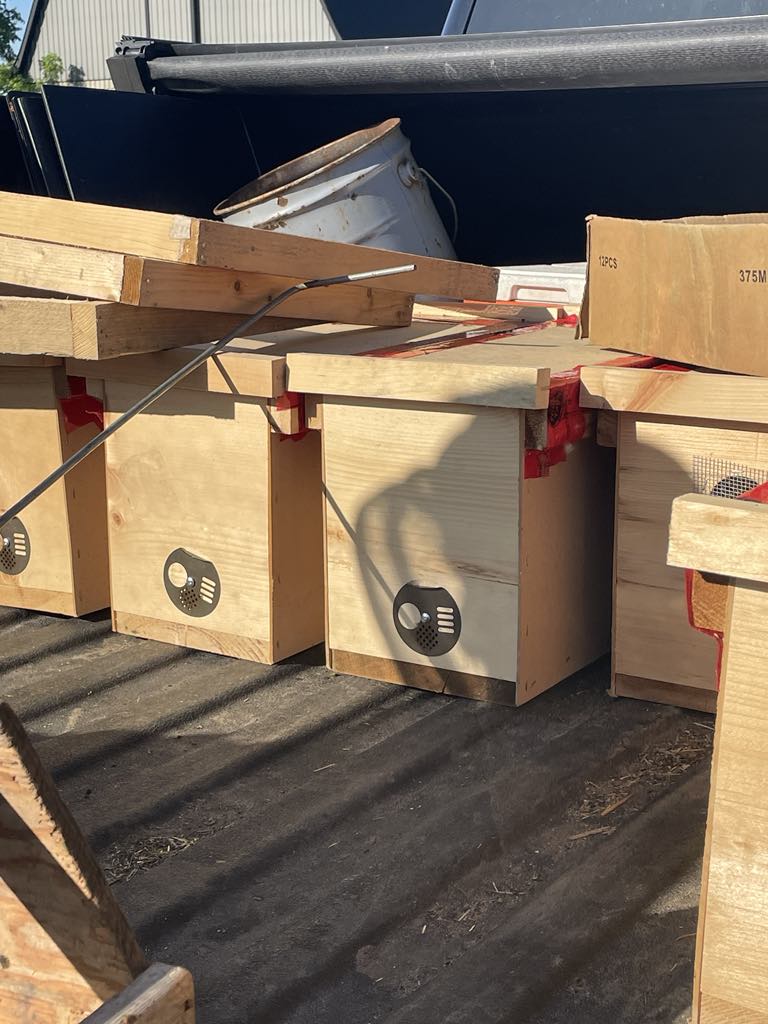
Note: This image is of nucs in our truck May 2024. There is more to beekeeping than the initial output. There is the time needed to learn how to keep bees and take care of them. Learn about the crucial investment in bees, focusing on the time and financial resources needed. Understand their role in sustaining our environment and agriculture.
Beekeeping isn’t a ‘hands free’ hobby. Initially, you will go into a bee store and see hundreds of items that all have a purpose. But when you get started there is really very little you need.
Most beekeeping supply stores can supply you with a kit:
- 1 top/cover, 1 bottom board
- 2 deep supers, 20 frames
- 1 bee suit
- 1 hive tool, 1 frame grabber
- Queen Excluder
- Smoker
This will cost you about $350-$500 CDN
There are a few things I would add
- 1 queen catcher (for catching the queen if you see her in an inspection.)
- 1 nuc box (To put frames of bees in, so you don’t lose the queen in an inspection.)
- Varroa Treatments (talk to your local beekeepers about the best choice.) These can run you under $10 to $50 per treatment.
- Hive top feeder. This will cost you $25+ but it can save your bees if the dearth (no flowers blooming in summer) goes too long, or the winter starts late.
- When you are starting I would also purchase a pollen patty, and some sugar.
- Comb capper to help harvest honey, plus a big bucket.
Then, you need your bees.
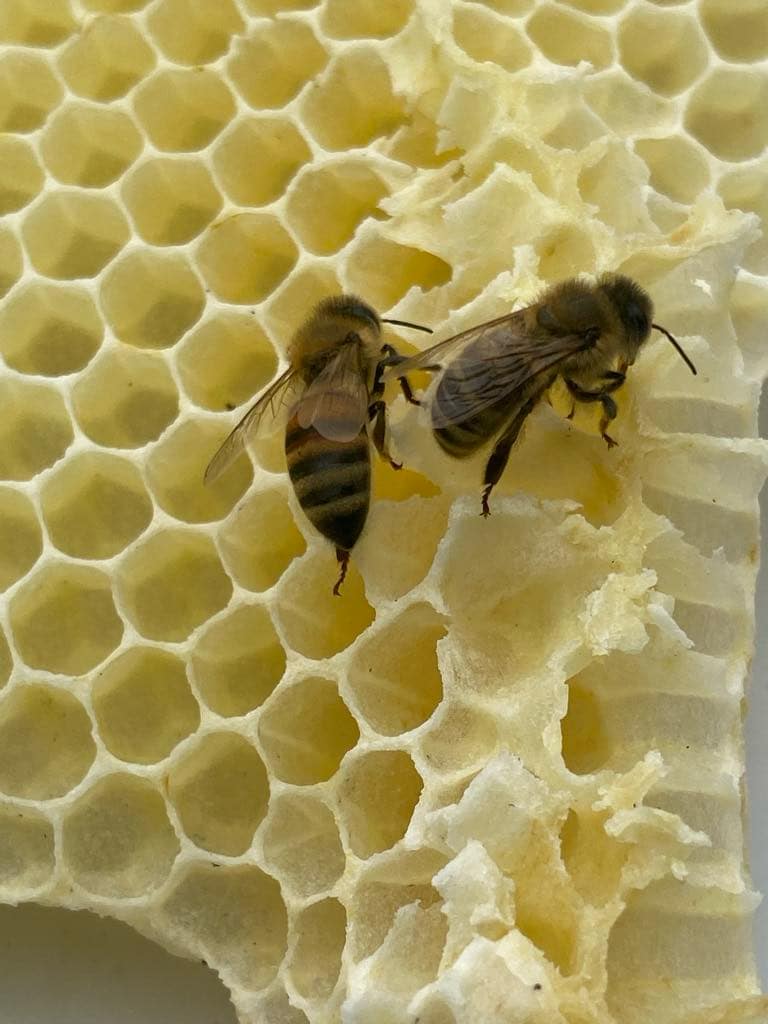
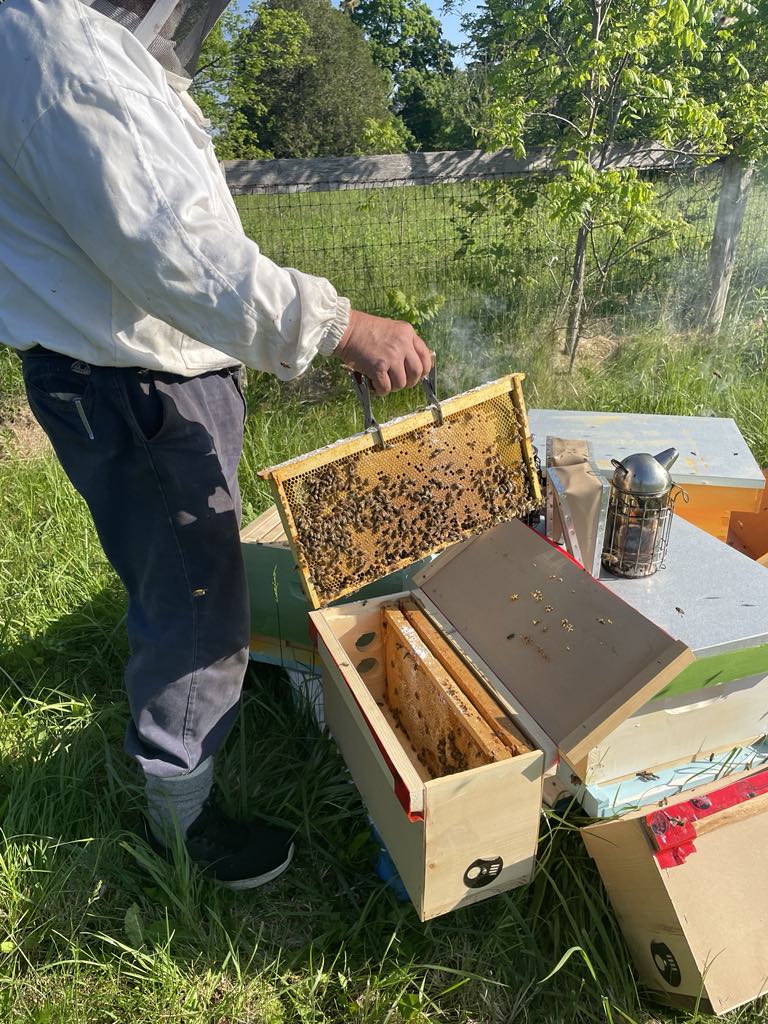
Bee Nucs
In our area of Ontario Bee Nucs are available Mid May to the end of June. The most popular is the 4 frame nuc. It consists of 2 frames of capped brood. 1 frame for the queen to work on. 1 frame of honey and maybe some bee bread.
Nucs are not all the same. Some of them are shaken together, and a queen added the morning you pick it up, or a couple days before. Others are made 2 weeks in advance and the queen has already started to lay. The best have overwintered queens who laid the capped brood, and is working on the other frame.
You will need to pick your Nuc up early in the morning. The longer you wait, the more bees will die. This is especially true if you pick them up on a warm day.
They will build up fairly quickly. The capped bees will be foraging in a couple of weeks. You can collect a full harvest of honey from a first year nuc.
The benefit of the Nuc over the bee package is that you will receive 4 frames of drawn comb. This will help your bees get started, stay warm, and let the newly hatched bees have a place to work until they are old enough to make new comb.
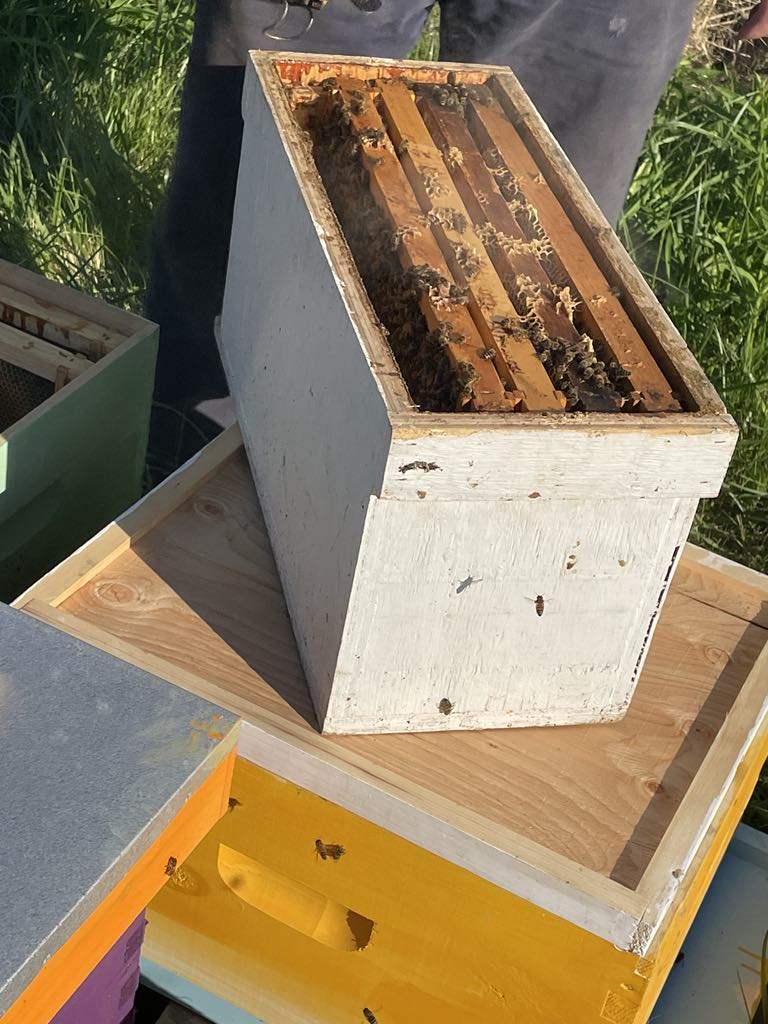
We buy our Nucs as early as possible. The longer the flow, the more they will build out comb and lay eggs. Comb, you will come to realize, is your most valuable asset.
I always feed new hives. I give them 1 pollen patty and feed them 1:1.25 (sugar/water). Most beekeepers feed 1:1, but we find that if you feed 1:1.25 to 1:1.50 then they will draw out comb and lay better.
You will experiment on your own and come up with your favorite mix. One thing that is a constant, beekeepers love to experiment.
Nucs in Ontario will cost you $200 – $300, depending on whether it has 4 or 5 frames, if the queen is overwintered, and the amount of bees.
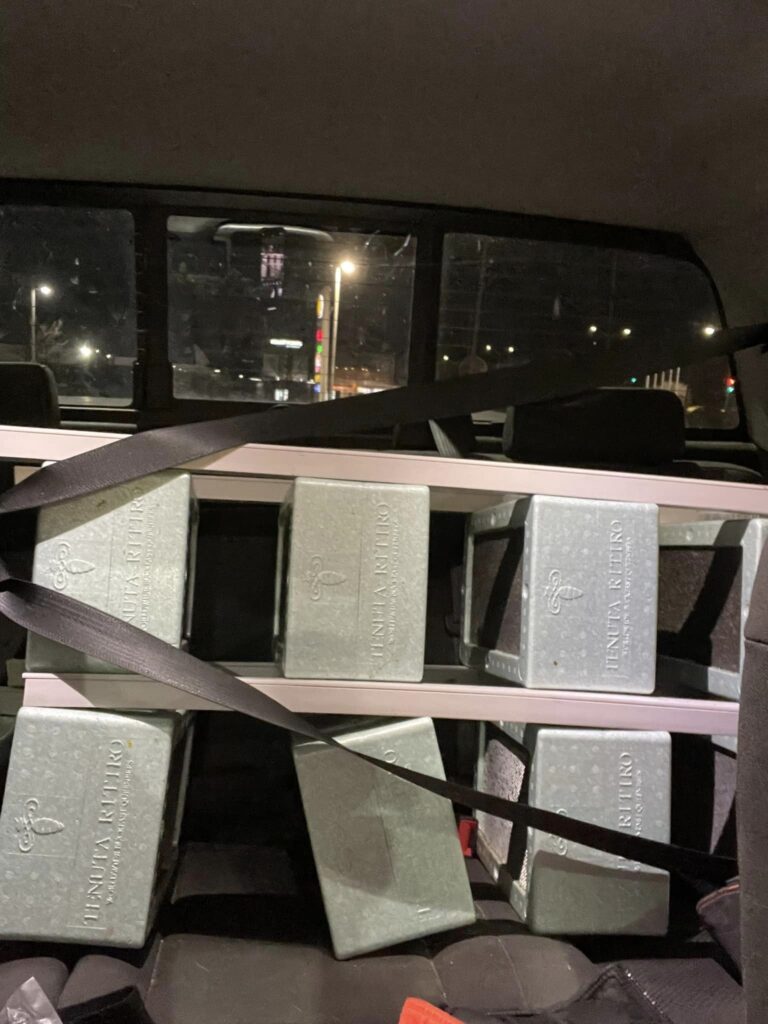
Image: Picking up packages at Toronto Airport, April 2025
Packages
Packages are a box of 3lb of bees, with 1 caged queen. Our Packages come from Italy. Most of the beekeepers import from Chile. There are some problems with importing. There is always the fear that you can bring in a virus or parasite that isn’t in Canada.
The benefit is that you can receive a package early April and let it build out, and be ready for the pollination season.
We import because the genetics are strong. Packages cost about $220 in Ontario
Hives
These are full, overwintered hives that were split in March/April and have an imported queen in them. They are usually for beekeepers who lost their hives and want a ‘quick start’.
These can cost $350 up to $600 depending on how many frames of bees. Most of the time they are a single deep (super) of bees, 10 frames, and are just sealed on the top and bottom with cardboard, plywood, etc. You will need a top and bottom.
Time Investment
Before Varroa Destructor hit North America a beekeeper would put 2 – 3 hives in the back field and leave them. They would go through their natural cycle of building up, swarming, building up and packing away honey, overwintering, and start all over again.
Varroa Mite has changed all of that. Now, it is important to stay on top of the mite population. As one of the foremost bee experts in North America, Randy Oliver, states in his website www.scientificbeekeeping.com, you are either farming bees, or varroa mites.
Most of the time a hobby beekeeper will spend their time sipping coffee in a lawn chair and watching the bees come awake for the day.
But there will be times when you need to inspect your hive. Some common causes are:
- What is the swarm risk
- What is the varroa mite count
- Are they building up enough stores
- Is there a problem or disease, like chalk brood, etc.
- Do you need to split the hive?
Our production hives are inspected every 2 – 3 weeks. Our breeding hives are inspected every 7 – 10 days. (No, we do not lose queens. Is it because the queens are smart enough to stay out of the way, or because we have developed skills, we cannot say.
We carry queen catchers. If we see the queen we catch her and put her safely out of the way.
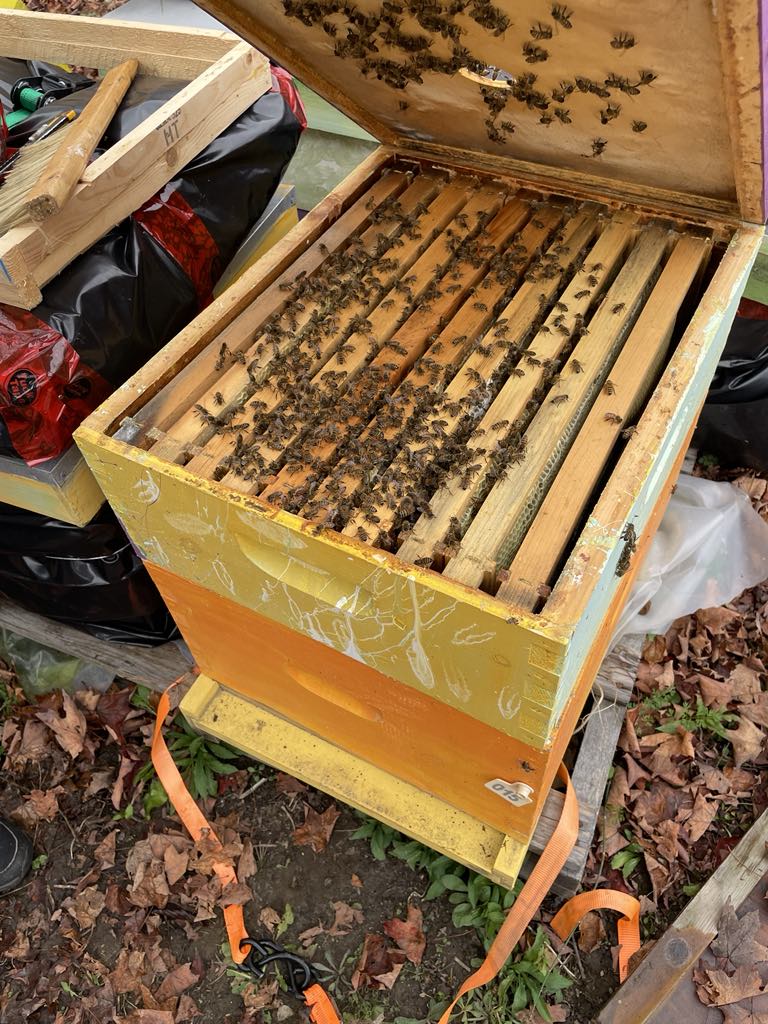
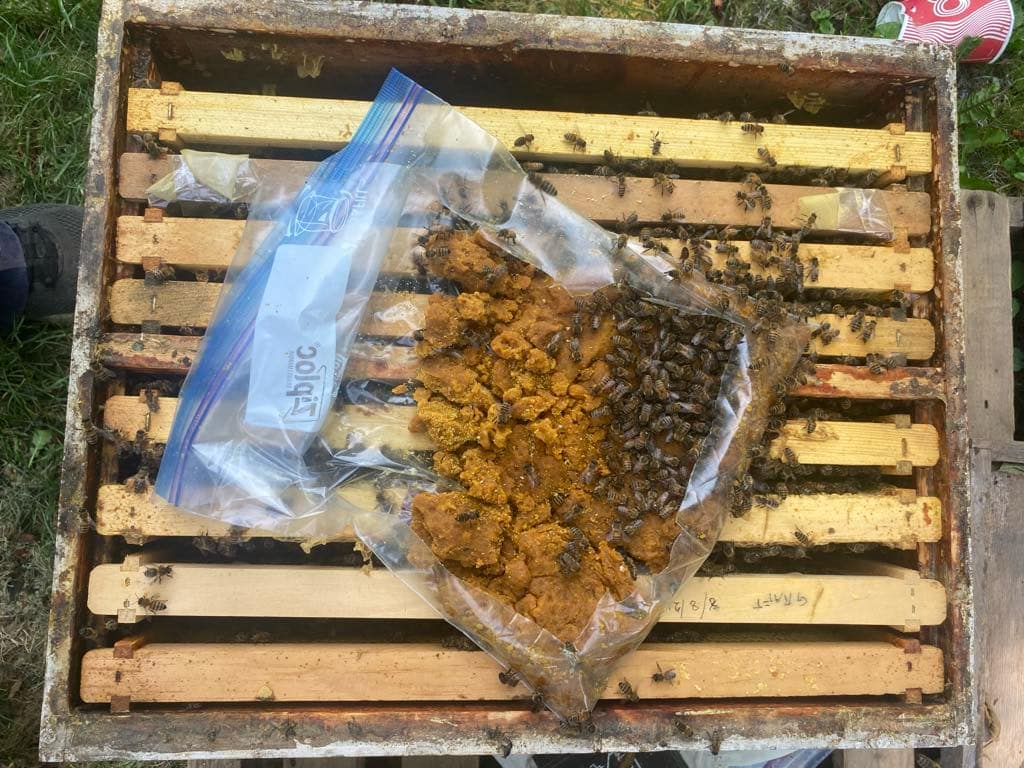
Bees Love Ultrabee. It helps feed the young larva when pollen isn’t coming in.
A professional can inspect a hive in under a minute. We average 5 minutes per hive. If there is a problem we can be in the hive for 30 minutes. When we take a frame out of the hive we put it in a nuc and cover it to reduce the bee’s stressors.
One thing I can say about bees. You never mind the time in the yards. I love being out at 8 am, and it is usually 2 o’clock before I can drag myself away. John likes to arrive about 9am and isn’t out of the yards until 4 or 5 or 6.

